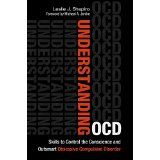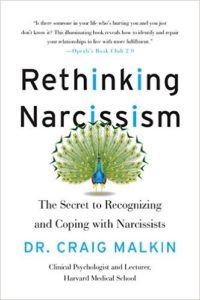It’s become a tradition that I publish a post about the advice from literary agents and acquisitions editors, shared at Harvard Medical School’s CME Publishing Course each year.
I could apologize for how long it languished in my drafts folder, but instead I’ll turn it into a teaching moment. By giving the post some time to stew, I realized I could add some examples to make it even more useful. You may find that with your writing as well. If it’s not jelling, let it go and return to it later.
And, without further ado, here’s the post inspired by advice from literary agents, with my own take on their advice, including examples that I hope bring their pithy pearls of wisdom to life.
Course director and founder, Julie Silver, MD, invited each literary agent or acquisitions editor to end the discussion with a pearl of wisdom. Here’s the necklace of pearls:
This Year’s Advice from Literary Agents and Acquisitions Editors
Debbie Carvalko, Acquisitions Editor with Praeger (ABC-CLIO): “Check competing books. What about the books strike you and inspire you?”
My Take: It’s important to know how your book fits into the market and is both similar to and different from other books in its category. Where can you make your mark and add to what’s already out there? How can you meet needs that other books don’t yet meet? Read the book reviews on Amazon and see what readers like about the books and what they think is missing. Consider addressing their complaints in your book!
 Leslie Shapiro, MSW, an expert in treating OCD (and a past course participant!), noted that patients tended to relapse if a specific symptom was not addressed. Yet other books seemed scant on advice about this symptom. Thus, she demonstrated a strong need for Understanding OCD, which was published by Praeger.
Leslie Shapiro, MSW, an expert in treating OCD (and a past course participant!), noted that patients tended to relapse if a specific symptom was not addressed. Yet other books seemed scant on advice about this symptom. Thus, she demonstrated a strong need for Understanding OCD, which was published by Praeger.
Jeanne Fredericks, Jeanne Fredericks Literary Agency: “This is a very accomplished group. Change your viewpoint while you’re here. Think of yourself as a student. Open up and ask questions; make connections.”
My Take: I’ve seen many course participants do a great job of asking questions, being open and networking. One favorite example is Jonathan Lief, MD, who signed a book contract last year with BenBella Books (Jeanne Fredericks is his literary agent). Years ago, Jon attended a blogging and social media advanced workshop with Rusty Shelton and myself and asked more questions than anyone I’d met at the course. Inspired, he decided to blog, worked with Rusty and continued asking questions. In 2016 his blog, Searching for the Mind, was awarded “Best World Wide Online Universities in “Neuronal Plasticity”: The Science of Learning – Resources on How Our Brains Work Best.” Other blogs included MIT’s and Stanford’s! Jon had never thought of his blog as an online university!
More about Jon’s blogging experience can be found in our interview about building an award winning blog.
Jean Black, acquisitions editor at Yale University Press: “Really work on the craft of writing. Consider a writing workshop. And, once a year, read a classic like Strunk and White’s The Elements of Style.”

My take: Although I teach writing workshops, I also become a student and take other people’s workshops at least one a year. Writers conferences, with multiple workshops, help you hone your skills, get creative, network and reinspire you. My favorites? Harvard Medical School’s course: Writing, Publishing, and Social Media for Healthcare Professionals and the San Francisco Writers Conference. The International Women’s Writing Guild (IWWG) offers many terrific weekend workshops as well as a summer conference. For a literary conference, consider the Ocean State Writers Conference at the University of Rhode Island.
The past two years I stretched myself and attended the Contemporary Theater Company’s Ocean State Improv Festival. Improv helps you let go of expectations, judgments and “monkey mind” and truly get present. And that’s a crucial skill for any writer to develop.
As to Strunk and White, I agree wholeheartedly. I especially enjoyed an anniversary edition sent to me by Teri Scheinzeit, award winning author of Success Without Stress: Simple steps to Finding Calm for Women Business Owners.
Linda Konner, Literary Agent at Linda Konner Literary Agency: “Write a magazine article or get an essay published on the topic of your book. You can get paid for it and you just may get the attention of an agent or publisher.”

My take: I love this advice and I’ve seen it happen. I would add, consider blogging for a national platform, like Psychology Today. Although you won’t likely get paid for blogging, it can increase your visibility dramatically. After Harvard Medical School’s CME publishing course, many years ago, Dr. Craig Malkin approached me for help with his book proposal. We took a step back and I shared some strategies for developing his author platform. He began a column for Psychology Today called Romance Redux, now one of PT’s most popular columns. After a post of his on narcissism went viral, HarperWave (a division of HarperCollins) approached him about writing a book on the subject. The result was the popular book Rethinking Narcissism.
John Mass, Literary Agent with Sterling Lord Literistic: Know the category you want to be writing in and read all the bestsellers.
My Take: Great advice. In the comps section of your proposal, you’ll want to compare your book to bestsellers. And, in terms of reading, it makes sense to learn from the most successful books. Find out what works. See what others have to say. Don’t write in a vacuum if you’re writing a prescriptive book.
Don Fehr, Literary Agent with Trident Media Group: “Just as we say, ‘Listen to your doctor,’ listen to your agent.”
My Take: This one speaks for itself. Agents know the field. They understand what specific publishers are looking for. They can help you make your book and proposal even more compelling.
Joe Rusko, Acquisitions Editor with Johns Hopkins University Press: “Be sure to involve your audience in your content creation process in some way—have a local book club or library group review a few chapters; ask for feedback on a chat group. Involving your ‘end users’ into manuscript development helps ensure your work will resonate with your prospective audience.’
My Take: I love Joe’s advice. Not only will it help you write a better book, but you’ll have fans who are already invested in its success!
Regina Brooks, Literary Agent and Founder of Serendipity Literary Agency: You need three things to interest agents and publishers: incredible writing, a hook and a strong platform.
My Take: Don’t worry if you don’t have these yet. It takes time to build your platform and write a great book (or book proposal). Give yourself the time to do it right.
I hope you find this advice from literary agents and publishers helpful! Continue to seek out experiences that will help you hone your skills and keep writing!



Thanks, Lisa, for more pearls! Ever so grateful for your sharing the wisdom of others, and for sharing more of yours!
Thanks, Lisa,
Question?
I have a publisher. My book will come out next year.
Do I need an agent as well?
Hi Irene,
Congratulations on your publisher. There are several aspects of an agent’s job. Certainly finding a publisher is the one we most commmonly think of, but other aspects include negotiating your contract and continuing to look after your best interests. If the author and publisher don’t agree about title or book cover, the agent can often make your case to a publisher. The agent’s experienced response to a book title will hold more weight than that of a new author, for example. In addition, your agent will make sure you are paid fairly by the publisher as well. And an agent can bring new projects your way.
If you have already signed a contract, it’s a bit late for an agent for this book, but if you have not yet signed, I strongly recommend you look for a literary agent or an intellectual property attorney to negotiate your contract. In this blog post, you can read more about the value of a literary agent.
Lisa, this is wonderful information, and is coming to me at the perfect time! I am in the midst of writing my 2nd book, and needed this guidance. By the way, I appreciate having had your advice all these years since we first “met” over the phone. My business has tripled since then, and I published my first book in December of 2017.
Hi Lori,
I’m thrilled to hear it. Congratulations on your first book and your business success! That’s terrific news. Feel free to ask any questions here about book proposals, writing, publishing and I am happy to answer.
Lisa